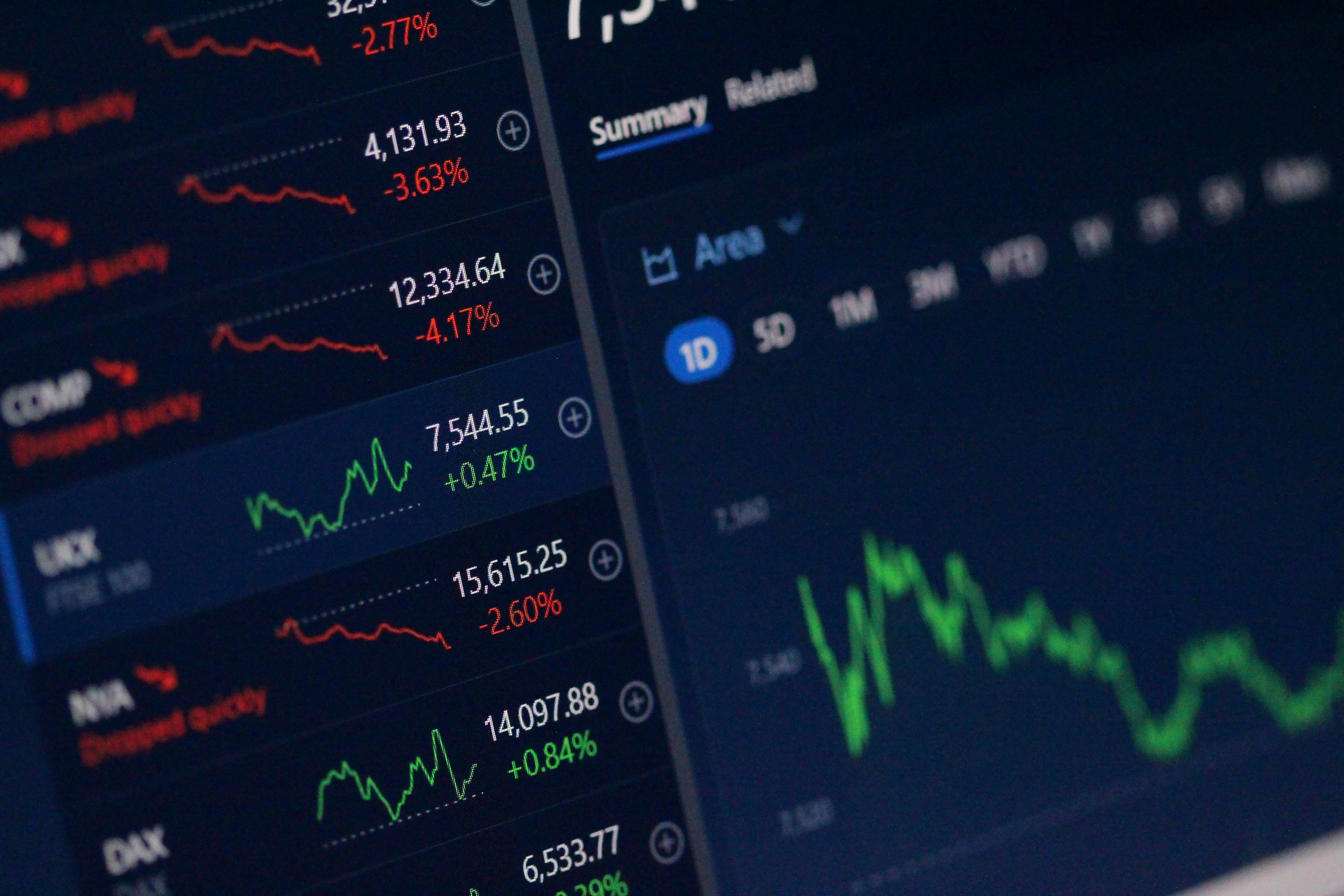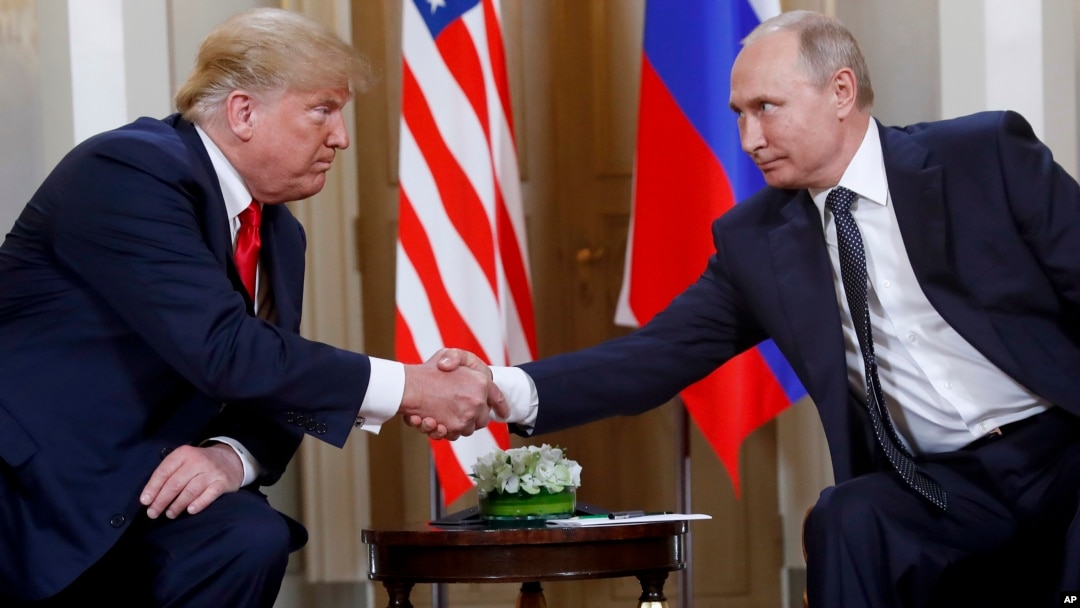Trump's Tariffs Send Stocks Plunging
President Trump's sweeping tariffs on major trade partners sparked a broad selloff on Wall Street, fueling fears of a trade war and global economic recession.
 Photo of black, money, trading, and light by Anne Nygård (@polarmermaid) (Unsplash)
Photo of black, money, trading, and light by Anne Nygård (@polarmermaid) (Unsplash)A broad selloff swept Wall Street on Thursday, led by heavyweight technology stocks, as President Donald Trump's sweeping tariffs on major trade partners ignited fears of an all-out trade war and raised the risk of a global economic recession.
The tariffs, which include a 10% levy on most goods imported into the United States and much higher duties on dozens of other countries, sent investors fleeing from risky assets and seeking the safety of government bonds. High-flying technology stocks, which have pushed Wall Street to record highs in recent years, suffered significant declines, with Apple sinking 8.4%, Nvidia slumping 6.2%, and Amazon.com dropping 7.4%.
According to Sam Stovall, chief investment strategist at CFRA Research, "The tariff announcement was much more dire than expected, and as a result, stocks are in a free fall, which is due to the expected inflationary impact of these tariffs." Stovall warned that if the Trump administration is unwilling to negotiate, retaliatory tariffs could exacerbate the situation and make matters worse.
China and the European Union have vowed to retaliate, with the EU facing a 20% duty. Other trading partners, including South Korea, Mexico, and India, have opted to hold off for now, seeking concessions before the targeted tariffs take effect on April 9.
The Dow Jones Industrial Average plummeted 1,427.21 points, or 3.38%, to 40,798.11, while the S&P 500 lost 227.51 points, or 4.00%, to 5,444.20. The Nasdaq Composite fell 899.29 points, or 5.11%, to 16,701.76. The CBOE Volatility index, known as Wall Street's fear gauge, touched a three-week high at 26.91 points.
The selloff has resulted in U.S. stocks losing ground since Trump took office in January, with the S&P 500 and the Nasdaq dropping 10% from their record highs last month. Traders are now expecting the U.S. Federal Reserve to cut interest rates four times this year, starting with a quarter-point cut in June.
Retailers were hit hard, with Nike dropping 10.2% and Ralph Lauren falling 16% after Trump imposed new tariffs on major production hubs. Big banks, including Citigroup and Bank of America, fell about 10% each, while JPMorgan Chase & Co lost 6.3%. The U.S. small-cap Russell 2000 index tumbled 5.9%, underscoring concerns about the health of the domestic economy.Trump's Tariffs Spark Wall Street Selloff, Fears of Trade War and Recession
A broad selloff swept Wall Street on Thursday, led by heavyweight technology stocks, as President Donald Trump's sweeping tariffs on major trade partners ignited fears of an all-out trade war and raised the risk of a global economic recession.
The tariffs, which include a 10% levy on most goods imported into the United States and much higher duties on dozens of other countries, sent investors fleeing from risky assets and seeking the safety of government bonds. High-flying technology stocks, which have pushed Wall Street to record highs in recent years, suffered significant declines, with Apple sinking 8.4%, Nvidia slumping 6.2%, and Amazon.com dropping 7.4%.
According to Sam Stovall, chief investment strategist at CFRA Research, "The tariff announcement was much more dire than expected, and as a result, stocks are in a free fall, which is due to the expected inflationary impact of these tariffs." Stovall warned that if the Trump administration is unwilling to negotiate, retaliatory tariffs could exacerbate the situation and make matters worse.
China and the European Union have vowed to retaliate, with the EU facing a 20% duty. Other trading partners, including South Korea, Mexico, and India, have opted to hold off for now, seeking concessions before the targeted tariffs take effect on April 9.
The Dow Jones Industrial Average plummeted 1,427.21 points, or 3.38%, to 40,798.11, while the S&P 500 lost 227.51 points, or 4.00%, to 5,444.20. The Nasdaq Composite fell 899.29 points, or 5.11%, to 16,701.76. The CBOE Volatility index, known as Wall Street's fear gauge, touched a three-week high at 26.91 points.
The selloff has resulted in U.S. stocks losing ground since Trump took office in January, with the S&P 500 and the Nasdaq dropping 10% from their record highs last month. Traders are now expecting the U.S. Federal Reserve to cut interest rates four times this year, starting with a quarter-point cut in June.
Retailers were hit hard, with Nike dropping 10.2% and Ralph Lauren falling 16% after Trump imposed new tariffs on major production hubs. Big banks, including Citigroup and Bank of America, fell about 10% each, while JPMorgan Chase & Co lost 6.3%. The U.S. small-cap Russell 2000 index tumbled 5.9%, underscoring concerns about the health of the domestic economy.







Conversation